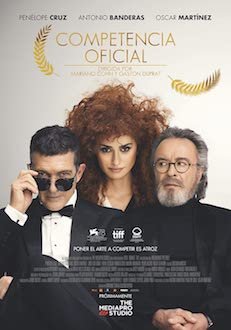Direction: Nathalie Alvarez Mesén
Country: Costa Rica
Clara Sola, the first feature film by Swedish-Costa Rican writer-director Nathalie Alvarez Mesén, relies on a solidly crafted story that, combining complex themes such as religion, sexuality, family oppression, and superstition, rewards inquisitiveness.
At the centre of the events is the 40-year-old Clara (played by the professional dancer Wendy Chinchilla Araya), a mystic virgin healer from a remote Costa Rican village, who, marked by the behavioral restrictions imposed by her castrating mother (Flor María Chavez), cures other people’s ailments but whose own body cannot be cured. Almost uncared-for, Clara is as devotional when she heals as she is ardent in the physical desire that burns for a late sexual awakening. She is fond of animals and picky about her clothes. She has been living all her life in sexual repression, occasionally kissing a young local boy in secrecy for practice, and recently dreaming with Santiago (Daniel Castañeda Rincón), the new boyfriend of her 15-year-old niece, Maria (Ana Julia Espinoza), whom she starts to imitate.
Believed to have been touched by a divine grace, she’s forbidden to touch herself. And yet, masturbation is her big weakness, a sin that her mother tries to prevent by rubbing her fingers with fresh chili peppers or burning their tips with a candle. She’s actually infantilized to the point of embarrassment. The director pushes a few right emotional buttons with the help of the lead actor, whose performance gives a way into her character that will compel the viewer. A transition from subjugation into freedom seems urgent, and the process is not devoid of intriguing episodes.
Shot with a vague poetic sense and employing a sensory staging that draws energy from people and the naturalistic surroundings alike, this film immerses us in an uncanny environment, almost between the real and the surreal. And we can only wish Clara could rebel against matriarchy and bring a ray of hope into her miserable life.








































